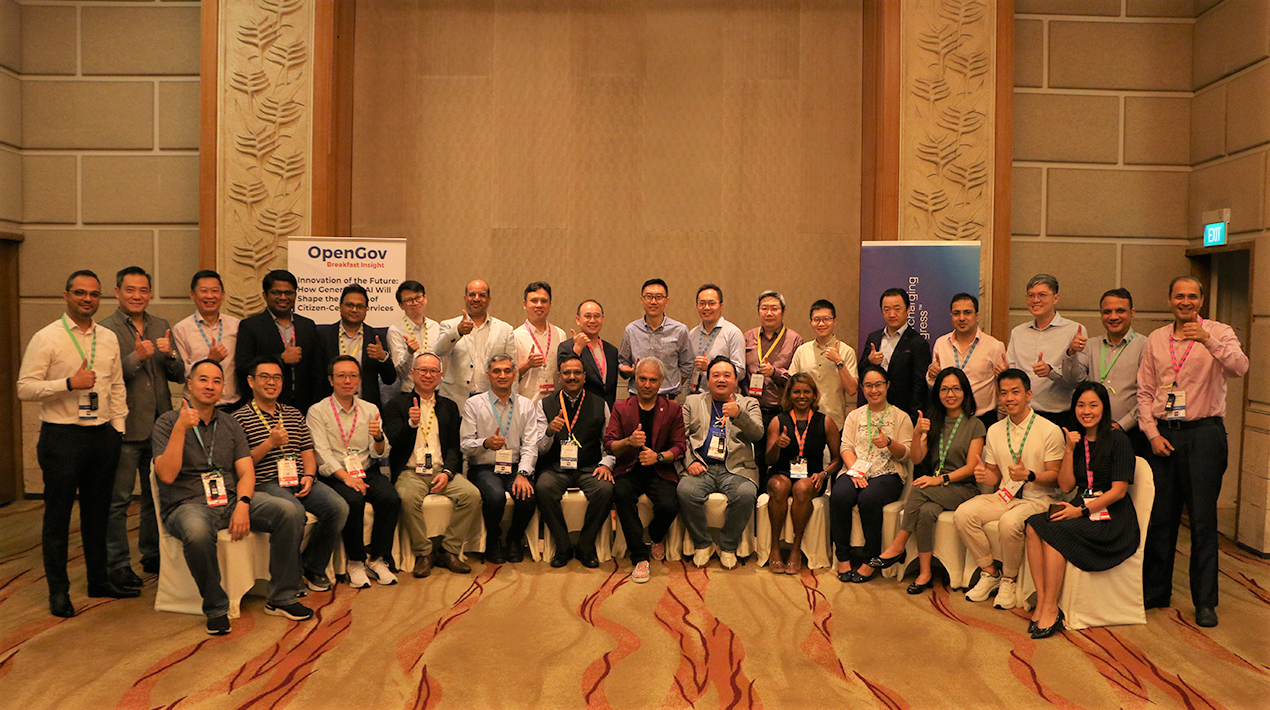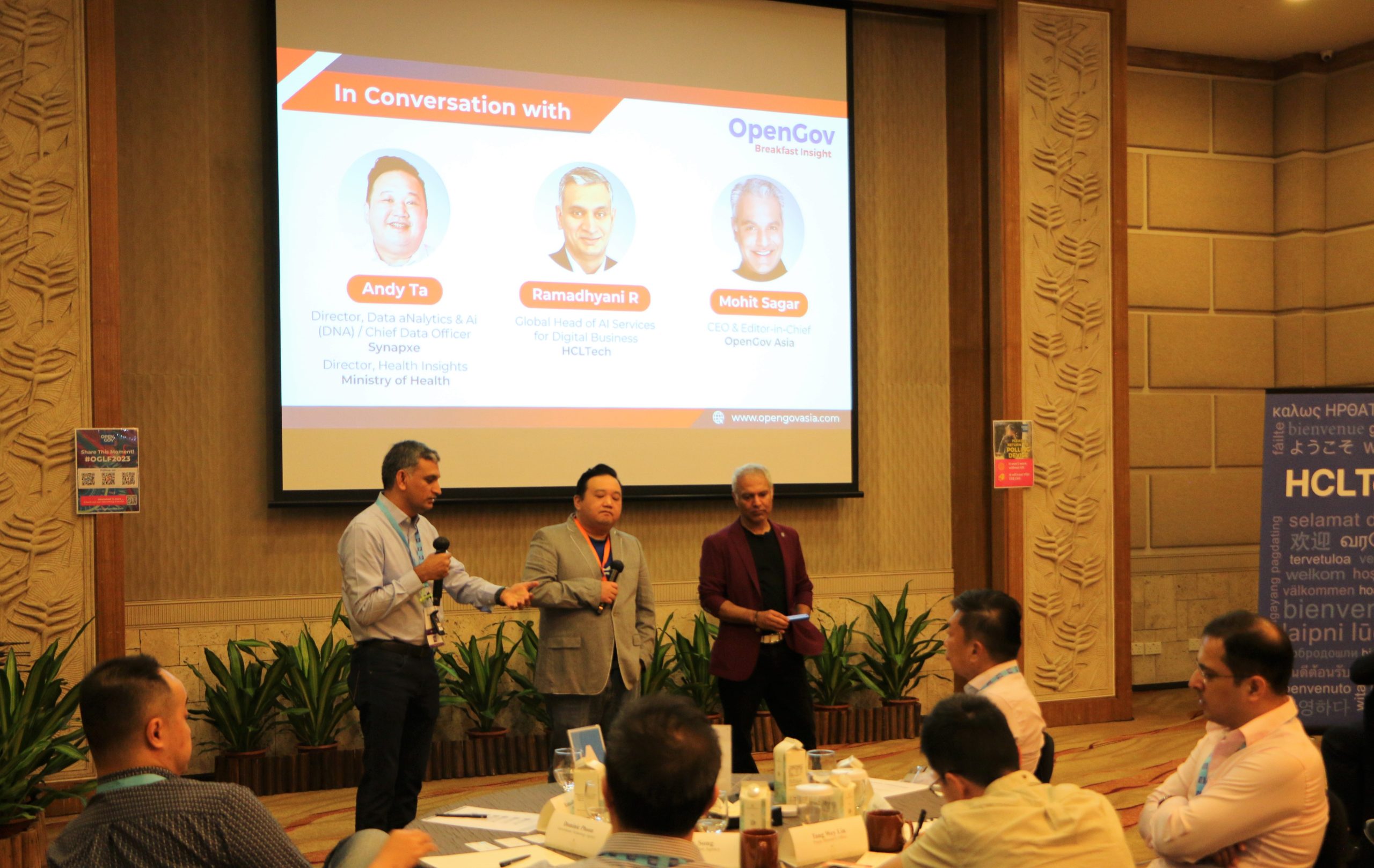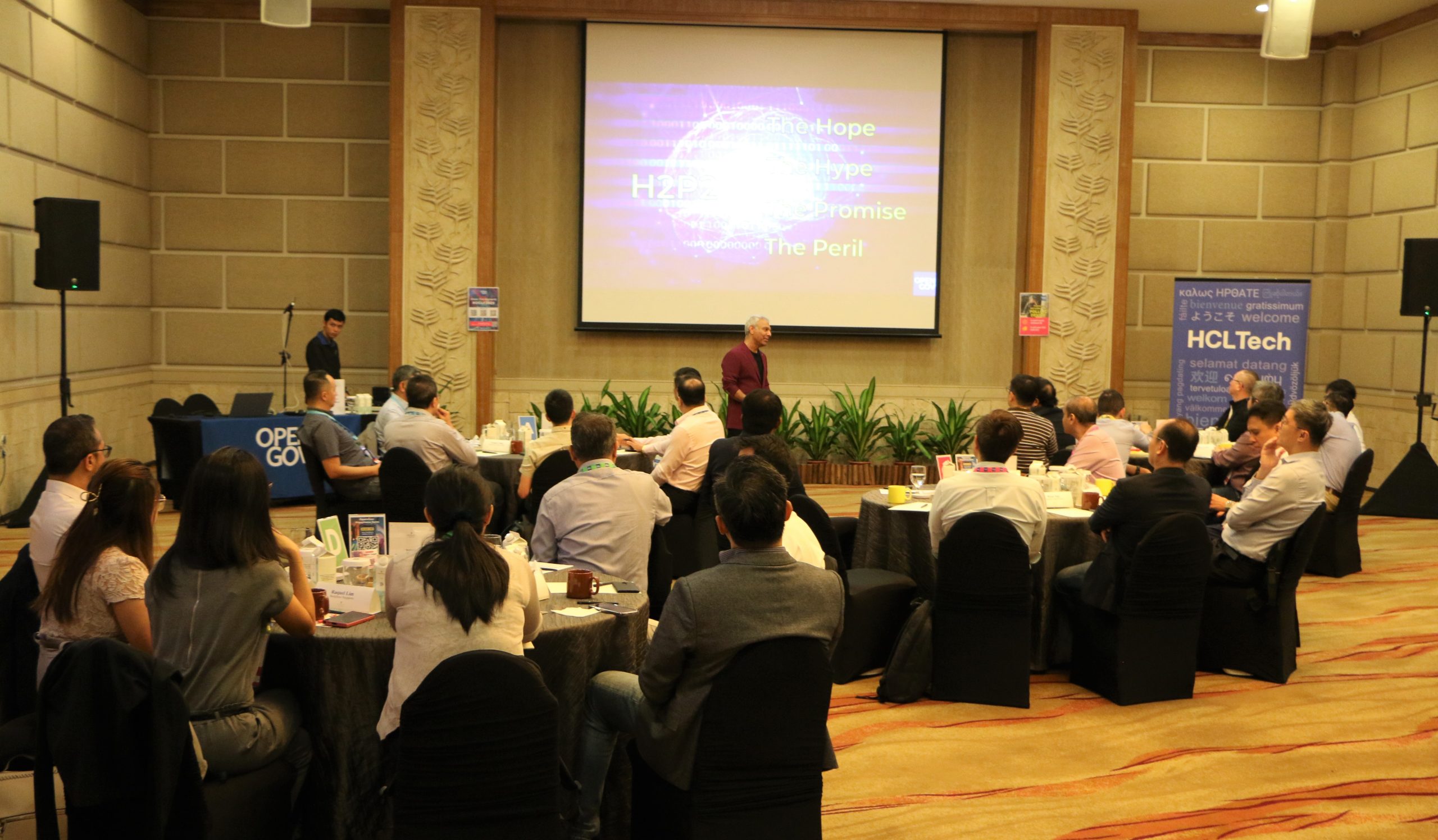
|
Getting your Trinity Audio player ready...
|
Despite being a nascent technology, Generative AI (GAI) is already responsible for significant disruptions. Recent advancements in the field have sparked a transformation across various industries, notably within the public sector. Its ability to enhance citizen services, amplify internal efficiency, delve into profound data analysis, and evolve into a creative instrument is evident.
GAI possesses the capacity to enhance user experiences significantly, fostering heightened public trust in governmental entities through its capability to predict community requirements in the present moment. This empowers GAI to elevate the quality of interactions between the public sector and citizens, effectively tackling challenges using intricate algorithms.
However, employing GAI presents an array of concerns and potential risks that cannot be overlooked, despite the evident benefits. Addressing matters of fairness, ethics, privacy, security, accountability, dependability, and safety is paramount, given that these aspects can emerge as challenges. The public sector must prioritise the cultivation of a comprehensive understanding of the enduring impacts of these technologies on the calibre and dispensation of public services.
Government agencies and entities must embrace responsible artificial intelligence methodologies when implementing this technology. Striking a harmonious equilibrium between regulation and innovation is imperative, even as GAI continues its evolution, maturation, and ascendancy. By keeping human interests paramount in its development, GAI holds the potential to markedly enhance the well-being of the communities it serves.
As new technological breakthroughs persistently emerge, GAI will progressively undergo adaptation. The landscape of ethical inquiries intrinsic to the utilisation of this technology, alongside the evolving patterns in user behaviour, will invariably exert their influence on this evolutionary process.
Amid all these transformations, a pivotal aspect that warrants particular attention is the ethical and adept utilisation of this technology, especially within the public sector. The potential to reshape and elevate public services, thereby enriching the lives of residents, hinges on the responsible application of these technologies
In fulfilling this responsibility, the public sector must diligently uphold the principles of honesty, transparency, and safeguarding individual rights. These measures are essential to ensure that this technology benefits society at large.
The OpenGov Breakfast Insight on 23 August 2023 at Shangri-La Rasa Sentosa in Singapore, imparted valuable knowledge and insights to the public sector regarding the application of Generative AI in the execution of public policies. The event highlighted how leveraging Generative AI can enhance community satisfaction and drive substantial enhancements for the communities it is aimed at serving.
Opening Remarks

Mohit Sagar, CEO and Editor-in-Chief of OpenGov Asia highlights the transformative power of Generative AI (GAI ) in shaping the future of public services while stressing the importance of responsible and ethical technology use, aving the way for a sustainable and inclusive digital future.
“Generative AI is revolutionising citizen-centric services by offering personalised, efficient, and user-friendly solutions,” he observes. “The impact of this technology on public service delivery is profound.”
Demonstrating their efficacy, the successful integration of diverse citizen-centric services, including virtual assistants, chatbots, recommendation systems, and document processing, has led to heightened efficiency and enhanced personalised experiences.
Harnessing the power of AI not only elevates service delivery but also optimises resource allocation and lowers costs, while the scalability and untapped potential of generative AI hold the promise of continuous innovation, underlining its transformative influence on public services. Ultimately generative and its applications serve as valuable assets for enriching citizen experiences and enhancing service efficiency.
Mohit elaborates on the capabilities of natural language processing (NLP), which fuels chatbots, automates document processing, and provides tailored recommendations. He emphasises the immense potential of merging generative AI with computer vision, envisioning its application in tasks such as fortifying public safety and conducting visual inspections.
“Generative AI empowers public services to provide personalised, efficient, and user-centric experiences,” Mohit reiterates. “It is revolutionising citizen interactions with these services across various domains.”
The realm of generative AI within citizen-centric services is experiencing a swift and dynamic transformation, primarily catalysed by the concerted efforts of prominent market leaders and visionary innovators.
Mohit Sagar shared illustrative examples from across the world that vividly demonstrate the progress and potential of GAI in diverse sectors of public service:
- United States Department of Defense – robust machine learning model training
- UK government – combatting fraud
- Singapore – personalised educational content
- The UAE – enhancing citizen services
- The European Commission – improving data management
Mohit Sagar draws attention to a critical aspect within the realm of citizen-centric services powered by generative AI: the necessity of addressing potential risks that accompany this transformative technology. Notably, he underscores the paramount importance of mitigating challenges such as data breaches and the utilisation of Large Language Models (LLMs).
These approaches encompass comprehending the potential hazards linked to data breaches involving Large Language Models (LLMs), embracing secure data-handling methodologies such as encryption and access controls, executing routine security audits, and instituting ongoing vigilance through continuous monitoring and incident response procedures.
Additionally, it underscores the paramount importance of complying with data privacy regulations, underscoring the necessity of adhering to these standards and leveraging privacy-enhancing technologies to safeguard citizen data. Through the implementation of these strategies, governments can effectively mitigate risks, foster trust, and guarantee the responsible and secure integration of Large Language Models (LLMs) in citizen-centric services.
Incorporating Generative AI into Singapore’s public sector innovation roadmap marks a pivotal trajectory towards elevating public services and optimising citizen experiences. Through deliberate strategic planning and ethical GAI integration, Singapore seeks to offer heightened efficiency and citizen-centric services, propelling innovation across various sectors in a responsible manner.
Ensuring privacy, security, and ethical governance is paramount when implementing Generative AI in Singapore’s public sector, says Mohit. However, to deploy GAI while safeguarding citizen data and maintaining public trust, several key considerations must be addressed responsibly and ethically.
These efforts encompass comprehensive privacy safeguards, encompassing adherence to data protection regulations, implementation of privacy-by-design principles, and the adoption of secure data handling practices. Emphasising security is paramount in thwarting unauthorised access and potential data breaches, demanding the implementation of robust cybersecurity measures such as encryption and stringent access controls.
By shedding light on these strategies, Mohit Sagar underscores the commitment to responsible AI adoption and the imperative of safeguarding citizen data. His emphasis on secure practices and ethical considerations echoes the need to strike a balance between technological innovation and protecting the interests and rights of individuals within the citizen-centric services landscape.
“Ethical governance frameworks are vital for setting clear guidelines and principles, addressing fairness, transparency, accountability, and bias mitigation to respect individuals’ rights and societal values,” Mohit concludes. “By integrating these considerations into GAI deployment, the government can build confidence, foster trust, and protect privacy while harnessing GAI’s benefits for public service transformation.”
Welcome Address

Aloysius Lim, Client Partner at HCLTech, explained that Generative AI (GAI) can be understood as a component of artificial intelligence (AI) that employs computational methods to produce outcomes resembling human-created content. He highlighted the substantial impact of GAI on the technology sector, bringing about transformations across various aspects of life, including the public sector.
Content encompasses text, images, graphics, music, and computer code among other forms. The Generative AI algorithm learns from data examples representing the intended outcome. By analysing patterns and structures within the training data, this algorithm generates fresh content that embodies the characteristics of the original input data.
As a pioneer in this field, HCLTech plays a pivotal role in developing AI solutions tailored to the needs of the public sector. Enterprises can reap the advantages of HCLTech’s expertise in identifying AI opportunities, devising strategic approaches and executing AI solutions.
“To address the unique demands of client industries and enhance the value we provide, our strategy involves seamlessly integrating our AI and Generative AI capabilities into a comprehensive consulting and delivery platform,” Aloysius explains. “This approach ensures a holistic solution that caters to specific industry requirements and maximises the benefits delivered.”
In a recent development, HCLTech has unveiled Generative AI Labs, aimed at aiding teams in crafting solutions and services spanning diverse roles and domains, including Systems Engineering, Process Operations, and Support. Furthermore, the lab is set to contribute to the establishment of a Generative AI skills academy, facilitating education on the optimal utilisation of this technology.
This initiative aligns with HCLTech’s consulting philosophy that encompasses the entire spectrum of AI integration, from silicon to infrastructure, applications, data, and business processes, through stages of development, injection, embedding, and integration.
In this endeavour, HCLTech collaborates with diverse sectors to identify AI opportunities that align with business objectives and build AI solutions that match each sector’s vision. This collaborative approach empowers organisations to harness AI technologies optimally, enhancing efficiency, productivity, and competitive edge within the market.
Moreover, HCLTech’s unstinting commitment to ethical practices and responsible deployment of AI technology guarantees that the solutions it delivers adhere to relevant ethical and legal standards. This commitment enables organisations to attain sustainable advantages while operating with a sense of assurance and integrity.
Aloysius believes that the successful adoption of AI technology lies in the fusion of technical and ethical considerations. To ensure a positive influence of AI adoption at both organisational and societal levels, organisations must approach each AI prospect with a strong ethical compass and a sense of responsibility. This approach serves as a sturdy cornerstone for building a promising and enduring future grounded in thoughtful technological advancement.
Upholding the regulations and regulations that oversee the utilisation of this technology, guaranteeing that its advantages extend to the broader community while safeguarding crucial principles such as personal privacy, is vital.
“The public sector must employ Generative AI wisely, considering the social, ethical, and security implications,” Aloysius concludes. “While Generative AI has immense potential to increase efficiency and public services, it is critical to deploy it with an understanding of the responsibilities that come with it.”
In Conversation with

As per Andy Ta, Director Data aNalytics & AI (DNA)/Chief Data Officer at Synapxe and Director of Health Insights at the Ministry of Health, prioritising a human-centric approach and upholding ethical principles in the adoption of Generative AI within the public sector emerges as a pivotal focal point. To realise this vision, there are several essential actions that public sector organisations should undertake.
“First and foremost, ethical frameworks and guidelines need to be established,” says Andy. “The well-being, privacy, and human interests should be given top priority in these frameworks.”
These criteria should be firmly rooted in principles such as fairness, transparency, accountability, and non-discrimination. Adhering to these guidelines enables organisations to ensure that AI systems prioritise the well-being of individuals and avoid causing any harm.
Data protection holds significant importance as well. Safeguarding the personal information of citizens necessitates a heightened emphasis on stringent data privacy measures within the public sector. Adhering to data security regulations is paramount, and data should consistently undergo encryption and anonymisation. Ensuring that citizens have confidence in the responsible and secure handling of their data fosters trust in AI-driven services.
Fostering transparency in AI decision-making processes stands out as a pivotal requirement, according to Andy. It is imperative for citizens to have the ability to comprehend how and why specific decisions are arrived at by AI systems. This transparency not only nurtures trust but also enables citizens to gain a deeper understanding of AI-powered services, ensuring their continued sense of control and informed engagement.
AI systems should consistently remain under human supervision. Although AI can forecast outcomes and streamline processes, human perspective and judgement are vital to gauging and accommodating nuances. Establishing mechanisms for human intervention when AI systems confront intricate or ethical dilemmas is crucial, ensuring that individuals retain the ultimate authority in significant decisions.

Ramadhyani R, Global Head of AI Services for Digital Business at HCLTech, underscored the significance of integrating users into the process of developing and implementing AI systems. He emphasised the value of soliciting public participation and feedback to ensure that AI applications effectively address genuine needs and concerns. By embracing co-creation and citizen engagement, the potential arises for the development of solutions that are deeply human-centric and aligned with the public’s values and preferences.
Ramadhyani emphasises the criticality of accountability mechanisms and underscores the necessity to define explicit lines of responsibility for AI systems.
“Allocating accountability for system behaviour and actions and implementing protocols for rectification in case of errors or unfavourable outcomes,” he adds, “are fundamental steps.”
Furthermore, he stresses the importance of disseminating knowledge and comprehension of AI within the general public and among public sector professionals. By fostering awareness of both the potentials and limitations of AI, individuals are empowered to advocate for its responsible use and facilitate its broader acceptance.
Conducting regular audits and comprehensive analyses of AI systems is equally imperative. These assessments facilitate necessary adaptations to ensure that AI systems consistently align with ethical standards and effectively fulfil societal needs. Additionally, such evaluations reveal any unforeseen consequences that might arise from the deployment of AI, enhancing the overall accountability and reliability of these systems.
To ensure the alignment of AI deployment with overarching ethical norms and societal values, Ramadhyani underscores the necessity for collaboration between the public sector, academics, civil society organisations, and AI ethics experts. By fostering these collaborative endeavours, the potential emerges for the creation of more comprehensive and ethically sound AI solutions that serve the best interests of society at large.
In the pursuit of responsible and ethical AI utilisation in public services, Andy advocates the need for a nuanced approach that harmonises innovation and regulation. According to him, achieving this equilibrium necessitates a multifaceted strategy.
Governments must initially establish distinct ethical standards and principles that prioritise attributes such as fairness, accountability, and transparency when incorporating AI, thus forging a delicate balance between technological advancement and ethical considerations.
Furthermore, he proposes a thorough examination of AI systems to guarantee their security and comprehensibility. He highlights the pivotal role of implementing rigorous data protection regulations, transparency standards, and mandates as fundamental steps in attaining this objective.

To establish standards for AI applications, certification programmes and industry standards should be created. Regulatory agencies must have the authority to monitor compliance and apply fines. To ensure that residents are informed and given opportunities to offer opinions, public involvement and education are crucial.
Ramadhyani underscores the significance of upholding a flexible and adaptable regulatory landscape, necessitating consistent assessments and adjustments to align with the progress of AI technology. In achieving regulatory harmony, extensive international coordination becomes paramount, particularly in cases where AI systems span across national boundaries.
To further encourage responsible innovation, it is advisable to encourage the creation of ethical AI through incentives like grants and tax benefits. This comprehensive strategy can ultimately assist governments in using the revolutionary potential of AI in public services while preserving individual liberties, privacy, and the larger public good.
A careful and balanced approach is required in Singapore’s public sector to adequately protect sensitive citizen data while utilising the possibilities of generative AI. To maintain citizens’ rights to privacy, strict data protection rules and regulations should be strengthened, with an emphasis on data minimisation and purpose limitation.
To ensure that only authorised personnel have access to sensitive data, a robust access control system, fortified by role-based access and two-factor authentication, should be established, Andy suggests. He emphasises the need to prioritise encryption and secure storage practices to safeguard data both during transit and while at rest.
Ramadhyani acknowledges the importance of incorporating anonymisation techniques and implementing differential privacy safeguards in the development and utilisation of generative AI models to prevent the inference of sensitive data. He advocates for fostering greater oversight and accountability through the promotion of transparency and explainability in the decision-making processes of AI systems.
Additionally, international data-sharing standards adherence, regular security audits, and penalties for non-compliance further fortify data protection efforts.
He believes that bolstering public awareness through awareness campaigns, coupled with collaborative engagements with experts in AI ethics, privacy, and cybersecurity, can cultivate confidence and ensure adherence to ethical data handling protocols.
Singapore may achieve a harmonious balance between utilising Generative AI’s capabilities and protecting the security and privacy of its people’s sensitive information by matching innovative potential with stringent safeguards and building a culture of responsible AI use in the public sector.
As per Andy, to establish trust among citizens regarding AI-generated outputs for critical services, government decision-makers need to emphasise transparency, adherence to ethical guidelines, and accountability. “AI systems should be designed to be explainable and interpretable, integrating well-defined mechanisms for human oversight and independent audits to mitigate biases and errors.”
Ramadhyani underscores the importance of public education campaigns, user-friendly interfaces, and effective feedback mechanisms to bolster citizen comprehension and involvement.
Furthermore, he highlights the significance of public consultation and gradual implementation, initiated through pilot programs. Such approaches showcase the government’s resolute commitment to the responsible utilisation of AI, fostering a sense of trust and embracing these pivotal services.
He is convinced that robust data privacy and security measures are imperative, along with a steadfast commitment to ongoing monitoring and enhancement.
Singapore’s public sector can effectively harness the transformative capabilities of Generative AI in driving public service innovation, all while proactively addressing potential misuse and safeguarding intellectual property rights.
According to Andy, this comprehensive approach will involve the establishment of unequivocal ethical and legal frameworks, placing paramount emphasis on data privacy and security, ensuring transparency and explainability in AI systems, and managing intellectual property rights diligently.
 Ramadhyani believes that Singapore can cultivate a responsible AI ecosystem by nurturing public-private collaborations, allocating resources to education and training, and involving citizens in the process. The continuous monitoring, auditing, and piloting of AI applications will further enhance responsible AI adoption.
Ramadhyani believes that Singapore can cultivate a responsible AI ecosystem by nurturing public-private collaborations, allocating resources to education and training, and involving citizens in the process. The continuous monitoring, auditing, and piloting of AI applications will further enhance responsible AI adoption.
These practices not only strengthen the responsible adoption of AI but also harmonise innovation with ethical considerations, resulting in services that enhance public welfare while upholding privacy and intellectual property rights.
The comprehensive discussion generated valuable insights into the responsible adoption of Generative AI (GAI) within the public sector, prioritising human well-being and privacy is clear. Along with the need for harmonising legislation for cross-border AI systems, emphasis must be placed on establishing ethical frameworks based on fairness and transparency.
Essential aspects encompass data protection, transparent AI decision-making, human oversight, public engagement, and regular audits. Collaborations with academia and civil society, a balanced innovation-regulation approach, strong data privacy measures, and active citizen participation are equally critical.
Overall, the perspectives underscore the importance of fostering trust, accountability, transparency, and a robust ethical AI ecosystem in public services.
Closing Remarks
Aloysius highlighted the distinctive transformative capabilities that AI currently provides. He recalled that the Singaporean government has been harnessing machine learning (ML) technology since 2015 to analyse citizen feedback concerning necessary environmental enhancements.
The implementation of ML technology has proven highly advantageous for Singapore. It accelerates and reinforces the enhancement of environmental infrastructure within communities, facilitating streamlined government operations.
This technological utilisation also ensures prompt and aligned responses to the pertinent requirements, thereby elevating public satisfaction with the government’s provision of public services.
He stressed HCLTech’s readiness to collaborate with the public sector in tackling forthcoming challenges, attributing their preparedness to years of accumulated expertise in the advancement and implementation of AI technology.
HCLTech is dedicated to collaborating with the public sector to develop AI solutions that are tailored to particular requirements, from processing citizen comments to spotting shipping abnormalities and even spotting fraud.
“We understand the huge potential that Generative AI has to improve the efficiency, speed, and quality of public services,” Aloysius says. “HCLTech intends to support the public sector in providing services to the general population by utilising the appropriate Generative AI.”
Aloysius envisions generative AI as a transformative tool capable of revolutionising the delivery of public services, with a continuous innovation outlook. Consequently, he believes that the public sector should embrace novel technologies to maximise societal benefits and enhance the public sector’s efficacy in achieving its objectives.
Mohit highlighted the critical significance of technology collaborations. He believes that these collaborations act as potent catalysts for innovation, empowering businesses to forge ahead in creating distinctive products and solutions through the strategic pooling of resources, expertise and capabilities.
These collaborations foster access to specialised expertise and skills that may extend beyond the internal capabilities of a public sector organisation, thereby enhancing their ability to deliver improved public services. Furthermore, these technology partnerships can lead to savings in costs, sharing of risks, and opportunities to venture into novel markets, highlighting their crucial role in bolstering citizen trust and sustaining competitiveness in the public sector.
Mohit is firm in his belief that these collaborative endeavours cultivate adaptability and flexibility within a dynamic landscape, thereby nurturing the expansion of technology ecosystems. By consolidating resources and expertise, these alliances empower organisations to effectively tackle global challenges, gain a competitive advantage and drive progress in sustainability initiatives.
“Technology partnerships are a cornerstone of modern business in a digital era, enabling organisations to successfully navigate complexity and seize opportunities,” he concludes.
















